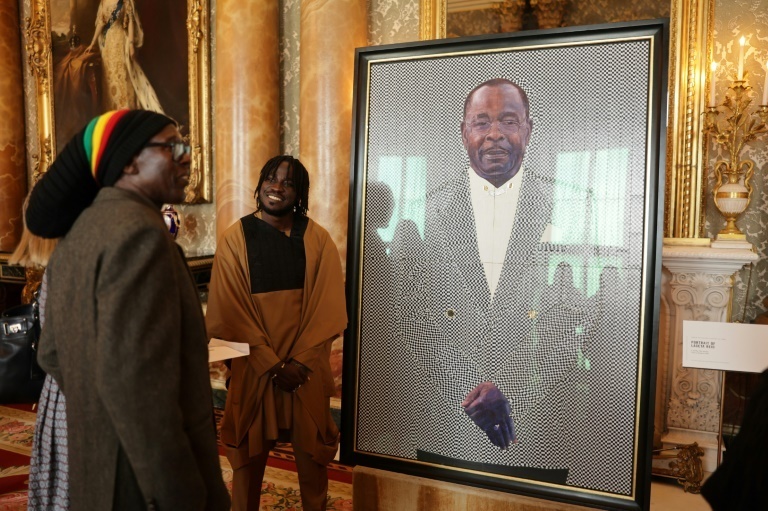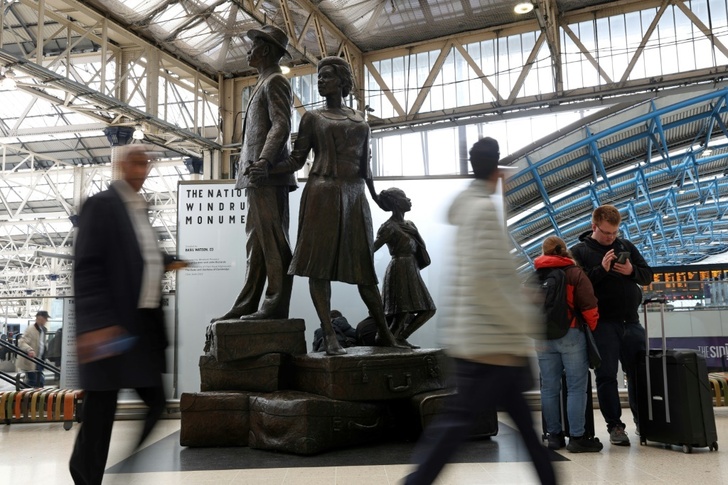Britain on Thursday celebrates the 75th anniversary of the arrival of the Empire Windrush ship bringing workers from the West Indies, but with the bitter legacy of a wrongful deportation scandal still fresh.
Known as the "Windrush generation", thousands of people came to the UK at the invitation of the British government between 1948 and the early 1970s to fill shortages of key workers following World War II.
Mostly from Jamaica or Trinidad and Tobago, they received indefinite leave to remain, but many who did not apply for passports later found themselves targeted by immigration laws intended to create a "hostile environment" for illegal immigrants.
Many lost jobs, homes, health care, pensions and benefits because they could not produce paperwork, while others were taken into custody or forced to return to the Caribbean.
Five years after the scandal sparked outrage, many of those affected are still waiting for the promised compensation.
Seventy-five years ago on June 22, 1948, several hundred migrants, mainly from the British colony of Jamaica, disembarked from the Empire Windrush ship at the port of Tilbury east of London.
"Welcome home," ran the headline in London's Evening Standard newspaper.
- 'Immeasurable contribution' -

"Once in Britain, they worked hard, offering their skills to rebuild a country during peacetime and seeking opportunities to forge a better future for themselves and their families," he said in the foreword of a book accompanying a display of portraits.
To mark the anniversary, Charles will attend a service for young people at St George's Chapel on the royal family's Windsor estate, west of London.
For surviving members of the Windrush generation and their descendants, however, the scandal that erupted in 2018 remains an open wound.
"It just felt like another trauma. It's just so unfair," said Yvonne Josiah, 61, who was born in London but whose mother came to the UK in the late 1950s.
"I grew up in a community of black people that came here, that were hard working... They didn't come here to rely on social housing... They weren't rebellious. They wanted to just live a quiet life, to work hard to achieve something, they wanted better for their children," she told AFP.
Yvonne's daughter, Kenya Josiah, 28, said she was still bewildered by how people who had been in the country for many years, supported the economy and paid taxes could be treated as if they were "disposable".
"I just felt like how could you treat people that... like they're nothing," she added.
Her generation was much more willing to speak out on the subject than that of her mother or grandmother, she added.
While the law guaranteed the Windrush generation the right to stay permanently in the UK, a lack of official papers left many in an impossible situation under the "hostile environment" introduced by the Conservative government in 2012 to reduce immigration.
After the scandal was uncovered, former prime minister Theresa May, who pioneered the policy as interior minister, personally apologised to Caribbean leaders in 2018 and in 2019 a compensation scheme was set up.
- Compensation -

As of January, HRW said, only 12.8 percent of the estimated 11,500 eligible claimants had been compensated.
As a way of dealing with the "negativity" of the scandal, Kenya Josiah teamed up with her best friend to produce a book about the Windrush generation.
The book, which she illustrated, tells the story of how her grandmother opened one of the few hairdressing salons for the black community in London in the 1970s.
"I think it's really important that the stories are told now," she said.
"When we were at school we really didn't know anything about the Windrush," she told AFP from her art studio in north London.
"I was really aware that my grandparents weren't English, they were from the Caribbean... but I didn't really know how to understand it until I was older.
"I just think that it's really important for children, not just black children, not just children of Caribbean descent, but also for other children from different races and different backgrounds to understand how our community came over here," she added.
vg/har/pvh/smw
© Agence France-Presse
Your content is great. However, if any of the content contained herein violates any rights of yours, including those of copyright, please contact us immediately by e-mail at media[@]kissrpr.com.
Source: Story.KISSPR.com

